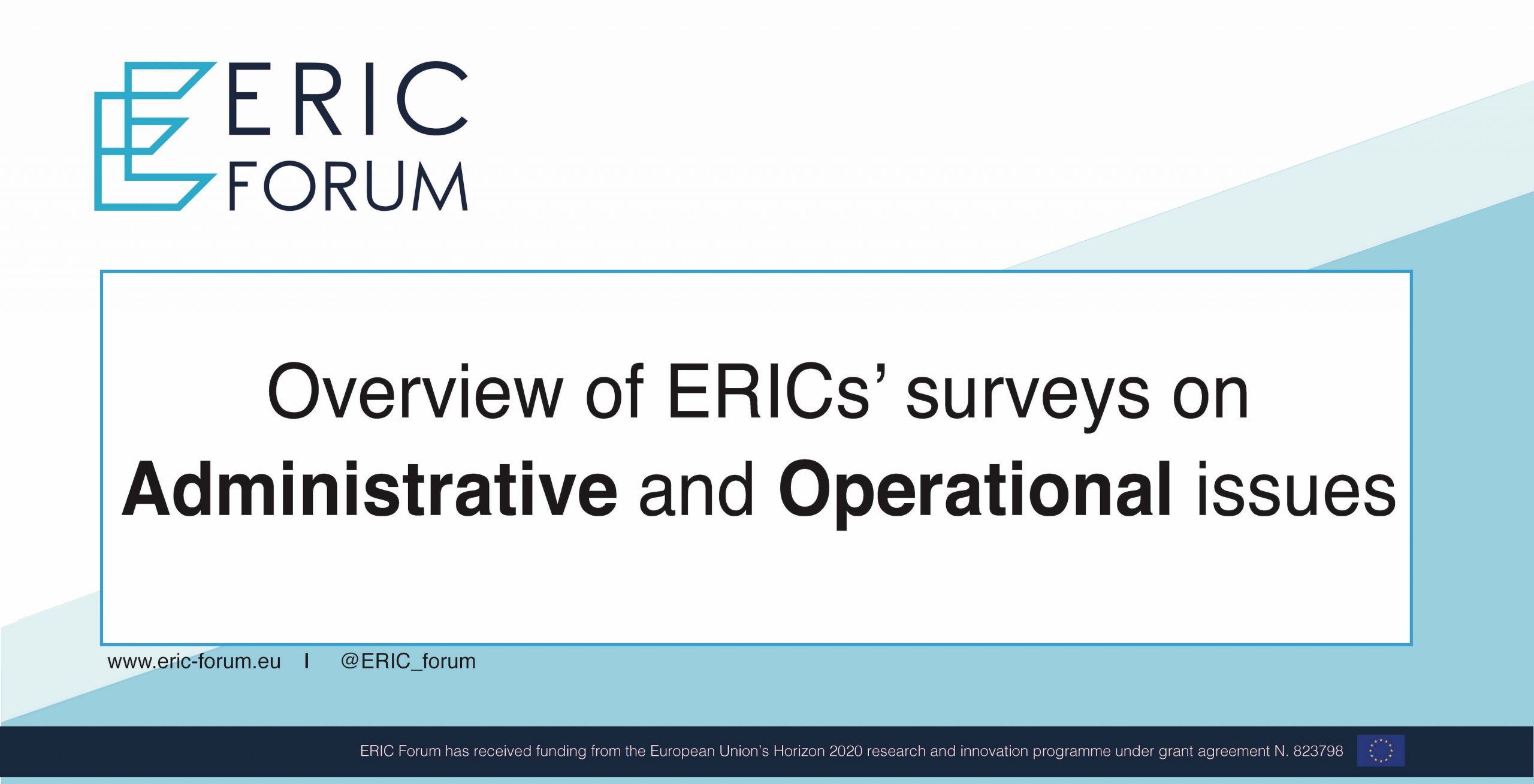
Between November 2019 and January 2020, the ERIC Forum conducted 4 surveys to collect feedback from ERICs on issues spanning financial reporting, budgeting, procurement, HR, insurance and more.
The aim of the surveys was to gather and analyse ERICs’ input regarding their topics of interest, current challenges, and collect current practices to solve these challenges.
Below is an overview of some input collected from more than 15 ERICs that responded to the 4 surveys.
- Survey 1 – Budgeting and Financial Reporting
Due to the rapid increase in the number of ERICs and their reliance on third party public funding, interest into how they measure and manage performance has intensified. Such performance reporting is country specific. Due to the lack of international financial reporting standards for not-for-profit organisations, financial reporting is inconsistent between countries. The communication of financial information is very important considering its effect on the reader of the financial statement. For that, the GAAP (Generally Accepted Accounting Principles), as an example, could improve the clarity and consistency of financial communication to the reader of these latter and to the public.
- Survey 2 – Procurement, VAT Exemption, Customs
Among all ERICs that responded, more than 50% confirm to have irregular procurement activities, whose areas cover national, European and international providers. Procurement with national providers being the most commonly used by 85% of ERICs responding to the questionnaire, and also the one in which ERICs’ VAT exemption is mostly implemented. For almost 80% of the ERICs that responded to the survey, procurement activities are being implemented by the Seat only.
As for the VAT issues, most ERICs are still facing various challenges in that regard, ranging from the purchase procedures at EU level, national refunds and In-kind contributions’ matters.
- Survey 3 – Employment, Secondment, Recruitment
Challenges in the Human Resources area within ERICs range from: talents’ attraction and retention for specific profiles, mobility, hiring and on-boarding processes. Most ERICs also do not have a dedicated HR staff member among their teams.
- Survey 4 – Insurance, Contracting, Intellectual Property
In this survey, ERICs were asked for input on aspects including IPR policies, contracting and insurance policies: 14 ERICs confirm to have insurance policies related to travel, health, premises and equipment, cyber-security and more. The insurance contracts are either developed by the ERIC on behalf of its national nodes, or directly by the node. Moreover, the same number of ERICs confirm to have contracts with external providers with different values, based on the aspect it relates to: such as for products, services or consultancy.
Conclusion
The next steps following these surveys would be to build consensus on best practices that can contribute to ERICs’ development and sustainability in the above-mentioned fields through additional bilateral interviews and workshops. Several reports will be compiled in the course of 2020 and 2021 and will be publicly available.
For more information, please contact Anne-Charlotte Fauvel from EATRIS-ERIC: annecharlottefauvel@eatris.eu